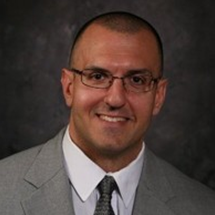Orthopedic Surgeon Affirms Residents Have a Choice for Board Certification
 My name is Manny Konstantakos, MD, and I’m a graduate of Case Western Reserve University School of Medicine and a board-certified orthopedic surgeon. After completing my residency in orthopedic surgery at Wright State University in Dayton, Ohio, and a fellowship in sports medicine and arthroscopic surgery at the University of Chicago, I sought to become board certified. I wanted to choose a certifying body not just because it was the most well-known, or the longest-standing, but because of what it actually tested us on (especially pertinent as future orthopedic surgeons).
My name is Manny Konstantakos, MD, and I’m a graduate of Case Western Reserve University School of Medicine and a board-certified orthopedic surgeon. After completing my residency in orthopedic surgery at Wright State University in Dayton, Ohio, and a fellowship in sports medicine and arthroscopic surgery at the University of Chicago, I sought to become board certified. I wanted to choose a certifying body not just because it was the most well-known, or the longest-standing, but because of what it actually tested us on (especially pertinent as future orthopedic surgeons).
Fortunately, internet research led me to the American Board of Physician Specialties® (ABPS). Upon successful completion of the Part I written exam (a 4-hour multiple choice exam consisting of 200 clinically-relevant, real-life practice-based scenarios), candidates qualify to sit for the Part II oral exam. In 2018, after meeting eligibility requirements and passing these rigorous but fair exams, I became board certified in orthopedic surgery through the Board of Certification in Orthopedic Surgery (BCOS), a Member Board of the ABPS.
By providing physicians like me with another recognized choice for board certification, the ABPS promotes competition that can foster better patient care. Given that quality patient care is always important and that certification is as critical in today’s health care as it has ever been, I’m proud to be a Diplomate of the ABPS. Consider that the ABPS:
- Is one of three nationally recognized certifying entities in the United States that offer board certification to orthopedic residents and surgeons
- Is recognized in the U.S. Department of Labor’s Occupational Outlook Handbook as a choice for physician board certification
- Is supported by Aperture Credentialing, the nation’s most experienced healthcare provider credentialing company
- Is the only multi-specialty certifying body that requires its Diplomates to complete a medical ethics course to achieve recertification
This medical ethics requirement was a key factor in my selection of the ABPS for my initial board certification. It likely influenced the decision of other ABPS Diplomates as well. After all, there are so many of us, and we practice medicine in all 50 states, plus Canada and Puerto Rico.
If you’re an orthopedic resident or surgeon seeking certification with an organization known for providing hospitals and health care facilities with top-notch professionals, I encourage you to contact the ABPS. When you do, ask about the eligibility requirements of the BCOS and its stringent but fair testing process.






